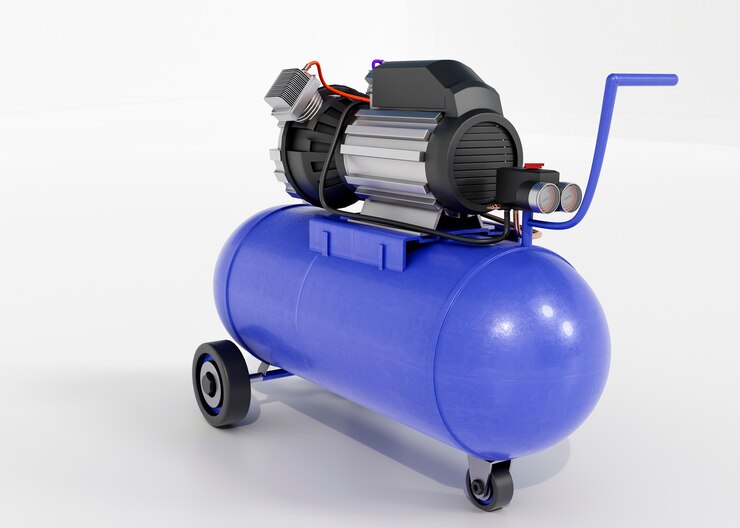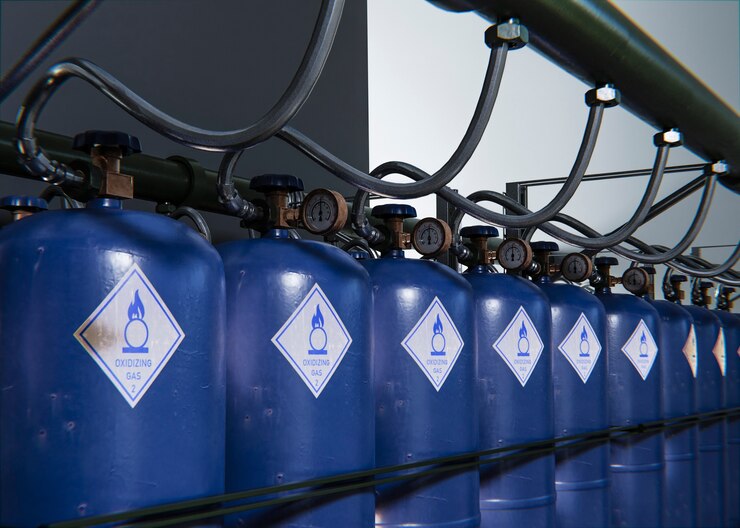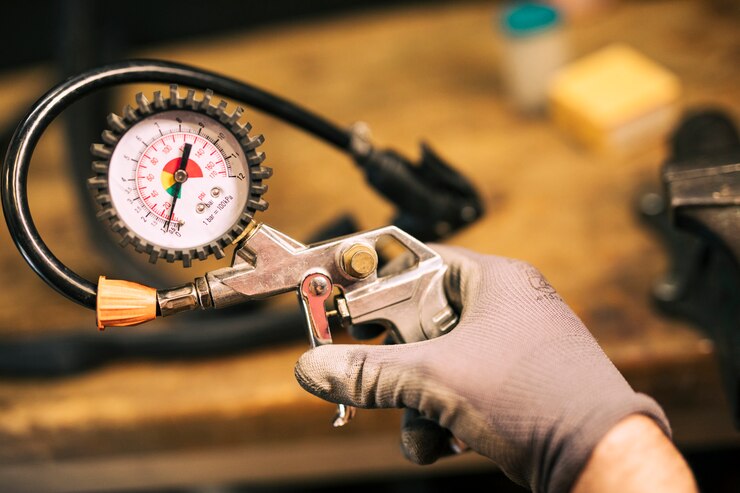Industrial Air Compressor 120 Gallon: A Comprehensive Guide
Industrial air compressors are a vital component in a wide range of industrial applications. These machines are designed to compress air and convert it into kinetic energy, which can be used to power various tools and machines. One of the most popular types of industrial air compressors is the 120-gallon air compressor.

A 120-gallon air compressor is a powerful machine that can deliver high volumes of compressed air for extended periods. These compressors are typically used in large industrial settings where a high volume of compressed air is required. They are also popular in automotive repair shops, where they are used to power air tools such as impact wrenches, sanders, and spray guns.
If you are in the market for a 120-gallon air compressor, there are a few key features to consider. These include the horsepower of the motor, the type of compressor pump, the size of the air tank, and the voltage requirements. Additionally, it is important to consider safety and compliance standards, as well as the installation and maintenance requirements of the compressor.
Key Takeaways
- Industrial air compressors are essential for powering various tools and machines in industrial settings.
- A 120-gallon air compressor is a powerful machine that is ideal for large-scale industrial applications.
- When purchasing a 120-gallon air compressor, it is important to consider key features, safety and compliance standards, and installation and maintenance requirements.
Overview of Industrial Air Compressors
Industrial air compressors are essential tools for many businesses that require compressed air to power their machinery. They are used in various industries, including manufacturing, automotive, construction, and more. Industrial air compressors are designed to provide continuous and reliable compressed air supply, making them an indispensable part of any industrial operation.
Types of Industrial Air Compressors
Industrial air compressors come in different types, each with its own set of advantages and disadvantages. The most common types of industrial air compressors are:
- Reciprocating Compressors: These compressors use a piston to compress air and are suitable for low to medium pressure applications. They are relatively inexpensive and easy to maintain, making them a popular choice for small businesses.
- Rotary Screw Compressors: These compressors use two interlocking screws to compress air and are suitable for high-pressure applications. They are more expensive than reciprocating compressors but are more efficient and have a longer lifespan.
- Centrifugal Compressors: These compressors use a rotating impeller to compress air and are suitable for very high-pressure applications. They are the most expensive type of compressor but are also the most efficient.
Applications of 120 Gallon Air Compressors
120-gallon air compressors are among the most popular types of industrial air compressors. They are suitable for medium to large industrial operations and can provide a steady supply of compressed air for extended periods. Some common applications of 120-gallon air compressors include:
- Automotive Repair: Air compressors are used to power pneumatic tools such as impact wrenches, ratchets, and sanders in automotive repair shops.
- Manufacturing: Air compressors are used to power pneumatic tools such as drills, grinders, and saws in manufacturing facilities.
- Construction: Air compressors are used to power pneumatic tools such as jackhammers, nail guns, and sandblasters in construction sites.
Overall, industrial air compressors are essential tools for many businesses that require compressed air to power their machinery. They come in different types and sizes, each with its own set of advantages and disadvantages. 120-gallon air compressors are popular among medium to large industrial operations and are suitable for a variety of applications.
Key Features of 120 Gallon Air Compressors
When it comes to industrial air compressors, 120-gallon models are some of the most popular choices. These powerful machines are designed to provide reliable and efficient compressed air for a variety of applications. Here are some of the key features of 120-gallon air compressors:
Tank Capacity and Output
One of the main advantages of a 120-gallon air compressor is its large tank capacity. This means that it can store a significant amount of compressed air, which is essential for applications that require a continuous supply of air. The tank capacity also determines the output of the compressor. Generally, a larger tank capacity translates to a higher output.
Pressure Ratings and Air Quality
Another important feature of 120-gallon air compressors is their pressure ratings and air quality. The pressure rating determines the maximum amount of pressure that the compressor can generate. This is important because different applications require different levels of pressure. For example, automotive painting requires a higher pressure than pneumatic tools.
Additionally, the air quality is also important, especially for applications that require clean and dry air. Some 120-gallon air compressors come equipped with air dryers and filters to ensure that the compressed air is free from moisture and contaminants.
Overall, 120-gallon air compressors are an excellent choice for heavy-duty industrial applications that require a continuous supply of compressed air. With their large tank capacity, high output, and advanced features, these machines are designed to provide reliable and efficient performance for years to come.
Installation and Maintenance
Space Requirements
Before installing an industrial air compressor with a 120-gallon tank, it is important to ensure that the space meets the necessary requirements. The compressor should be installed in an area that is well-ventilated, dry, and free of dust and debris. The compressor should also be placed on a flat, level surface that can support its weight and the weight of the tank when it is full. It is recommended to have at least 3 feet of clearance on all sides of the compressor to allow for proper airflow and maintenance.
Installation Best Practices
When installing an industrial air compressor with a 120-gallon tank, it is important to follow best practices to ensure that the compressor operates safely and efficiently. The compressor should be installed by a qualified technician who is familiar with the installation process and the specific model of the compressor. The technician should ensure that all electrical connections are properly grounded and that the compressor is connected to a dedicated circuit with the correct voltage and amperage rating.
Additionally, the technician should ensure that the compressor is properly aligned with the drive motor and that all belts and pulleys are properly tensioned. The technician should also ensure that all hoses and fittings are properly installed and tightened to prevent air leaks.
Routine Maintenance Tips
To ensure that an industrial air compressor with a 120-gallon tank operates at peak efficiency and has a long service life, it is important to perform routine maintenance. This includes checking the oil level and changing the oil as recommended by the manufacturer. It is also important to check and replace the air filter as needed to prevent dust and debris from entering the compressor.
Additionally, the technician should inspect the compressor regularly for signs of wear and damage, such as worn belts, leaking hoses, or damaged fittings. Any issues should be addressed immediately to prevent further damage to the compressor and ensure that it operates safely and efficiently.
Overall, following these installation and maintenance tips can help ensure that an industrial air compressor with a 120-gallon tank operates safely and efficiently for years to come.
Safety and Compliance Standards

Operational Safety
When it comes to operating an industrial air compressor 120 gallon, safety should always be a top priority. The compressor should be installed in a well-ventilated area and away from any potential sources of ignition. It is important to follow the manufacturer’s instructions and ensure that all safety features are functioning properly before using the compressor.
Users should also wear appropriate personal protective equipment (PPE) when operating the compressor. This includes safety glasses, ear protection, and gloves. Loose clothing and jewelry should be avoided to prevent them from getting caught in the compressor’s moving parts.
Regulatory Compliance
There are several regulatory compliance standards that apply to the use of industrial air compressors. These standards are in place to ensure that the compressor is safe to use and does not pose a risk to the environment.
ISO 7183:2007 specifies the requirements for compressed air dryers, while ISO 12500:2007-Part 1 to 3 outlines the test methods for filters for compressed air. ISO 8573-Part 1 to 9 provides guidance on compressed air contaminants and purity classes.
In the United States, the Department of Energy (DOE) has established energy conservation standards for air compressors. These standards are designed to reduce energy consumption and promote energy efficiency. The DOE’s regulations cover testing, rating, certification, and compliance responsibilities.
Compliance with these standards is important to ensure that the compressor is operating safely and efficiently. Users should familiarize themselves with these standards and ensure that their compressor meets all applicable requirements.
Buying Guide for 120 Gallon Air Compressors

When looking for a 120-gallon air compressor, there are a few key factors to consider. This guide will help you assess your needs, consider cost, and select a vendor that can provide you with the right compressor for your business.
Assessing Your Needs
The first step in selecting a 120-gallon air compressor is to assess your needs. Consider the following factors:
- Air flow requirements: Determine the amount of air flow you need for your application. This will help you determine the minimum CFM (cubic feet per minute) rating you need for your compressor.
- Power source: Decide what power source you prefer for your compressor. Electric compressors are typically quieter, more efficient, and easier to maintain than gas-powered compressors.
- Portability: Consider the portability of your compressor. If you need to move your compressor frequently, look for one with wheels and a handle.
- Noise level: Determine the acceptable noise level for your compressor. If you need a quiet compressor, look for one with a low decibel rating.
Cost Considerations
When it comes to cost, there are several factors to consider:
- Upfront cost: Determine your budget for your compressor. Keep in mind that a higher upfront cost may result in a more efficient and reliable compressor in the long run.
- Operating cost: Consider the operating cost of your compressor. Look for a compressor that is energy-efficient and requires minimal maintenance.
- Warranty: Look for a compressor with a good warranty. This will protect you from unexpected repair costs.
Vendor Selection
When selecting a vendor for your compressor, consider the following:
- Reputation: Look for a vendor with a good reputation in the industry. Read reviews and ask for references.
- Customer service: Choose a vendor that provides excellent customer service, including technical support and after-sales service.
- Product selection: Look for a vendor that offers a wide selection of 120-gallon air compressors, so you can find the one that best fits your needs.
By considering these factors, you can select a 120-gallon air compressor that will meet your needs and provide reliable performance for years to come.
Frequently Asked Questions

What are the benefits of using a single phase 120-gallon air compressor in an industrial setting?
A 120-gallon air compressor provides a high level of compressed air output for industrial applications. It can handle large-scale tasks such as sandblasting, painting, and drilling. A single-phase motor is easy to install and operate, making it a popular choice for small to medium-sized industrial operations. It also requires less maintenance than a three-phase motor.
How does a 120-gallon air compressor compare to a 200-gallon model in terms of performance?
A 120-gallon air compressor is suitable for most medium-sized industrial operations. It provides a high level of compressed air output for tasks such as sandblasting, painting, and drilling. However, for larger-scale tasks, a 200-gallon air compressor may be more suitable. It provides a higher level of compressed air output and can handle more demanding tasks.
Can a 120-gallon air compressor tank be used as a replacement for other compressor sizes?
No, a 120-gallon air compressor tank cannot be used as a replacement for other compressor sizes. The size of the compressor tank should match the size of the compressor pump. Using a tank that is too small or too large can affect the performance of the compressor and may lead to damage.
What are the key considerations when choosing an Ingersoll Rand 120-gallon air compressor for industrial applications?
When choosing an Ingersoll Rand 120-gallon air compressor for industrial applications, it is important to consider the type of compressor pump, the motor size, and the CFM rating. Ingersoll Rand offers a range of compressor pumps, including reciprocating, rotary screw, and centrifugal pumps. The motor size should match the power requirements of the pump, and the CFM rating should match the compressed air output required for the task.
How does the longevity of a 120-gallon air compressor affect its overall value for industrial use?
The longevity of a 120-gallon air compressor is an important factor to consider when purchasing for industrial use. A compressor with a longer lifespan can provide better value for money in the long run. Ingersoll Rand offers a range of durable and reliable 120-gallon air compressors that are designed for industrial use and built to last.
What are the electrical requirements for a 120-gallon air compressor in a 3-phase power setup?
The electrical requirements for a 120-gallon air compressor in a 3-phase power setup depend on the motor size and voltage rating. In general, a 10 horsepower motor requires a 230-volt power supply, while a 15 horsepower motor requires a 460-volt power supply. It is important to consult the manufacturer’s specifications before installing a 120-gallon air compressor in a 3-phase power setup.



